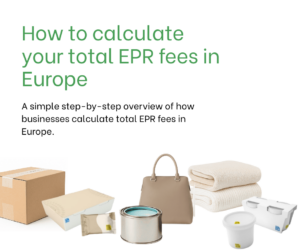E-invoicing in Germany
E-invoicing in Germany
E-invoicing, or electronic invoicing, is the process of sending and receiving invoices electronically rather than through traditional paper-based methods. In Germany, like many other countries, there has been a significant push towards digitalization, and e-invoicing is a key part of this transition.
Features of Electronic Invoices in German Law
German legislation has introduced specific regulations governing electronic invoices, including requirements for structure, content, and acceptance. These regulations aim to ensure the authenticity, integrity, and readability of electronic invoices.
Goals of Implementing E-Invoicing in Germany
- Streamlining business processes
- Reducing administrative costs
- Improving data accuracy
- Enhancing transparency
- Supporting the country’s digital transformation
What Format Is German E-Invoicing?
Overview of E-Invoicing Formats
Several formats are commonly used for e-invoicing in Germany, with ZUGFeRD and XRechnung being the most prominent.
- ZUGFeRD: This format is widely used in Germany and offers a flexible approach to e-invoicing, allowing for both structured and unstructured data.
- XRechnung: Based on the European standard EN 16931, XRechnung is designed for cross-border e-invoicing and provides a highly structured format.
How to Choose the Right Format for Your Business
- The size of your business
- The complexity of your invoicing processes
- Your existing IT infrastructure
- The requirements of your trading partners
Comparison with Formats in Other EU Countries
While ZUGFeRD and XRechnung are commonly used in Germany, other formats may be used in different EU countries. It’s essential to understand the specific requirements of your trading partners to ensure compliance.
Who Needs Electronic Invoicing in Germany?
Categories of Companies
E-invoicing is becoming increasingly mandatory for businesses in Germany, especially in the following categories:
- B2G (Business-to-Government): Many German government entities now require electronic invoices.
- B2B (Business-to-Business): While not yet mandatory for all B2B transactions, there is a growing trend towards electronic invoicing, particularly in larger enterprises and specific industries.
Specifics for International and Small Companies
International companies operating in Germany need to comply with local e-invoicing regulations. Small companies may find it challenging to implement e-invoicing due to resource constraints, but there are various solutions and services available to assist them.
Timeline of E-Invoicing in Germany
Introduction of Mandatory Use for B2G
The required format for B2G invoices is XRechnung. This is an XML-based semantic data model that complies with the European standard EN 16931 and is a response to the CEN standard (CEN/TC 434).
Mandatory/Not Mandatory B2G
- Since 27 November 2020, B2G e-invoicing has been mandatory at the federal level and in the federal state of Bremen.
- As of 1 January 2022, B2G e-invoicing became mandatory in the federal states of Saarland, Hamburg, and Baden Württemberg.
- As of 1 April 2023, B2G e-invoicing became mandatory in the federal state of Mecklenburg-Western Pomerania.
- As of January 2024, B2G e-invoicing will become mandatory in the federal state of Rhineland-Palatinate.
- As of 18 April 2024, B2G e-invoicing will become mandatory in the federal state of Hessen.
Planned Changes for B2B
- January 1, 2025:
- All businesses in Germany must be capable of receiving electronic invoices.
- Paper invoices can still be used with the explicit consent of the recipient.
- January 1, 2027:
- Businesses with an annual turnover exceeding €800,000 must issue electronic invoices.
- January 1, 2028:
- All businesses in Germany must issue electronic invoices.
Influence of EU Directives
EU directives, such as the e-Invoicing Directive, have played a crucial role in shaping Germany’s e-invoicing regulations. These directives aim to create a single European market for e-invoicing.
Multi-Country E-Invoicing Solutions
Implementing e-invoicing in Germany can be challenging, especially for businesses operating across multiple countries. A unified e-invoicing solution ensures compliance not only in Germany but also in other jurisdictions.
Explore how our multi-country e-invoicing engine simplifies cross-border compliance and streamlines your invoicing processes.



